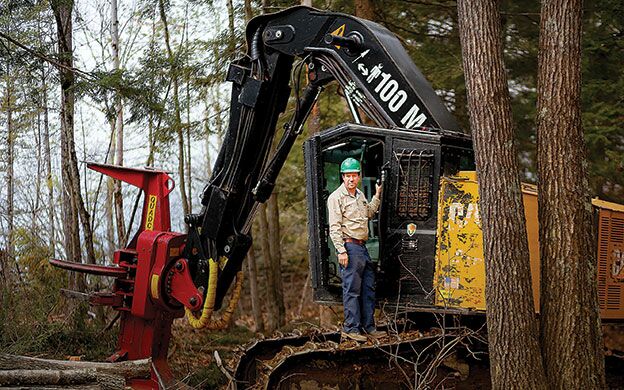Processing Your Payment
Please do not leave this page until complete. This can take a few moments.
- News
-
Editions
-
- Lists
-
Viewpoints
-
Our Events
-
Event Info
- Women's Leadership Forum 2025
- On the Road with Mainebiz in Bethel
- Health Care Forum 2025
- On The Road with Mainebiz in Greenville
- On The Road with Mainebiz in Waterville
- Small Business Forum 2025
- Outstanding Women in Business Reception 2025
- On The Road with Mainebiz in Bath
- 60 Ideas in 60 Minutes Portland 2025
- 40 Under 40 Awards Reception 2025
- On The Road with Mainebiz in Lewiston / Auburn
- 60 Ideas in 60 Minutes Bangor 2025
Award Honorees
- 2025 Business Leaders of the Year
- 2024 Women to Watch Honorees
- 2024 Business Leaders of the Year
- 2023 NextUp: 40 Under 40 Honorees
- 2023 Women to Watch Honorees
- 2023 Business Leaders of the Year
- 2022 NextUp: 40 Under 40 Honorees
- 2022 Women to Watch Honorees
- 2022 Business Leaders of the Year
-
-
Calendar
-
Biz Marketplace
- News
- Editions
- Lists
- Viewpoints
-
Our Events
Event Info
- View all Events
- Women's Leadership Forum 2025
- On the Road with Mainebiz in Bethel
- Health Care Forum 2025
- On The Road with Mainebiz in Greenville
- On The Road with Mainebiz in Waterville
- + More
Award Honorees
- 2025 Business Leaders of the Year
- 2024 Women to Watch Honorees
- 2024 Business Leaders of the Year
- 2023 NextUp: 40 Under 40 Honorees
- 2023 Women to Watch Honorees
- 2023 Business Leaders of the Year
- + More
- 2022 NextUp: 40 Under 40 Honorees
- 2022 Women to Watch Honorees
- 2022 Business Leaders of the Year
- Nomination Forms
- Calendar
- Biz Marketplace
New study stokes the debate over oil heat versus wood
 Photo / Tim Greenway
Tom Cushman, owner of Maine Custom Woodlands on a feller buncher in the woods in Gray. A new report by the Maine Department of Agriculture, Conservation and Forestry states that more than 100 major buildings in Maine have made the conversion to heating with wood, which creates stronger markets for Maine-made wood pellets and chips and the loggers who deliver the raw materials to those manufacturers.
Photo / Tim Greenway
Tom Cushman, owner of Maine Custom Woodlands on a feller buncher in the woods in Gray. A new report by the Maine Department of Agriculture, Conservation and Forestry states that more than 100 major buildings in Maine have made the conversion to heating with wood, which creates stronger markets for Maine-made wood pellets and chips and the loggers who deliver the raw materials to those manufacturers.
A report by the Maine Department of Agriculture, Conservation and Forestry claims more than 100 major buildings in Maine have made the conversion to heating with wood instead of oil.
In most cases, the report says, wood chip or wood pellet systems replaced those using heating oil. The installations have been on college campuses, schools and institutions.
Part of the debate centers around the fact that most of the wood pellets and wood chips are produced in Maine, while heating oil comes from outside the market.
As a result, direct spending on “local” fuels, wood pellets and wood chips, totals $6.3 million a year. The study claims the annual savings amounts to $5.5 million. The total economic impact from buying the wood products is $20.6 million, according to the report.
In 2017, wood fuel in the 100-plus building studied totaled 19,000 tons of pellets and 45,000 tons of wood chips. The fuels are nearly entirely produced within Maine, “supporting hundreds of jobs,” the study claims.
“By switching to wood fuels, we keep our fuel dollars here, support our local economy and improve our forest resource base by strengthening markets for low grade wood,” Doug Denico, director of the Maine Forest Service, said in a press release.
The study did not evaluate either residential or industrial use.
In recent years, wood pellet usage has spiked as a reaction to higher heating oil prices. But the report makes a case that wood use lessens the dependence on fossil fuels.
“Maine remains among the most dependent states in the country on imported fossil heating fuels,” said Charlie Niebling, a consultant with Innovative Natural Resource Solutions and author of the study. “We can sustainably displace a meaningful percentage of this with modern wood heating fuels from Maine forests. This transition can create jobs and economic opportunity at a time when other low-grade forest product markets are declining, and support good forest management.”
The report was released in advance of the first Maine Modern Wood Heat Symposium, to be held Thursday, Oct. 25, at Northern Maine Community College in Presque Isle. More information can be found at www.woodheatmaine.org.
The Maine Statewide Wood Energy Assistance Team, a project of the Maine Forest Service, is an education and technical assistance initiative to promote advanced wood heating, supported by the USDA Forest Service.









Comments